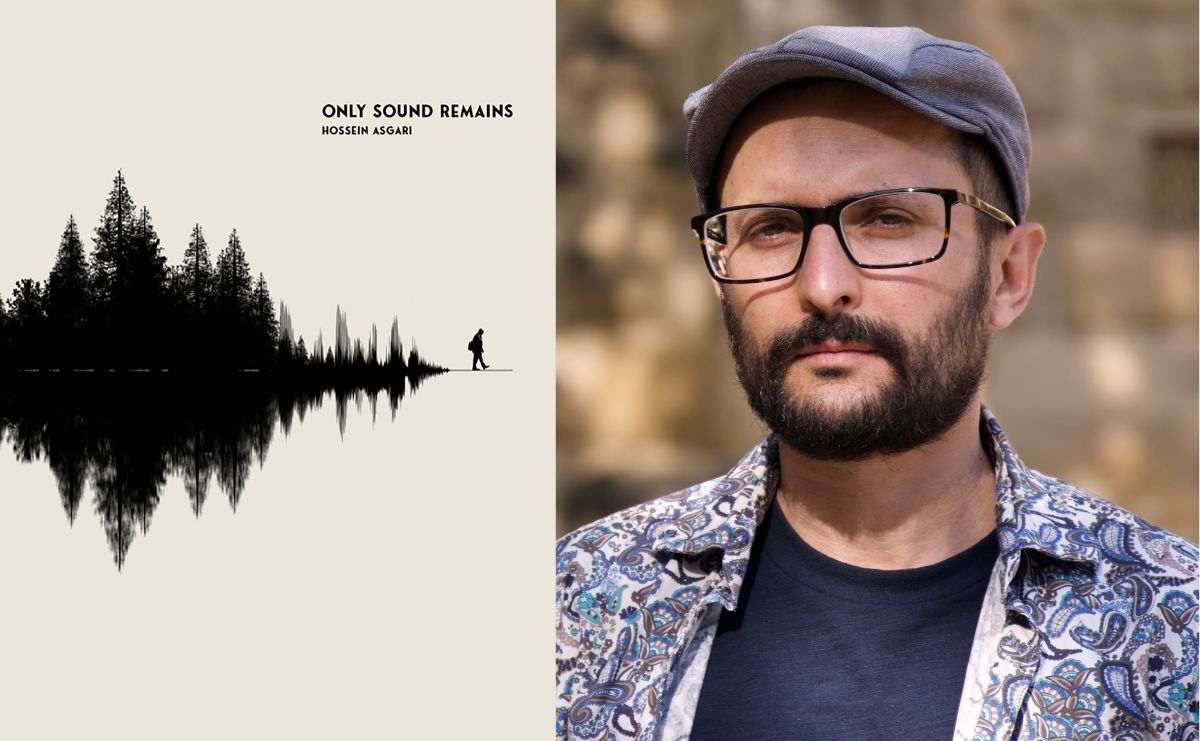Hossein Asgari’s Only Sound Remains introduces an accomplished voice in both Australian literature and the diasporic literature of Iran. This novel evokes past and present Iranian ways of life through instances of manners, gestures, speech patterns and traditions. It also elucidates Iran’s silences and silencing, its vast literary heritage, the political upheavals, the violence and loss, the influence of Islam and its interpretations and the weight of its history. Yet this is diasporic fiction that does not fall over itself, for it never feels anthropological or packaged for pedagogy.
Rather, it is – from its layered and specific cultural context – an exploration of the complexity of relationships, the complications of art and all types of idealism, and the risks of disclosure.
Saeed is a young Iranian man living in Adelaide, who fears persecution if he returns to his homeland, even for a visit, after publishing a novel that references the activism and execution of his friend, Payam. At the beginning of Only Sound Remains, Saeed collects his father, Ismael, from the airport and there is a sense of unspoken purpose to this uncharacteristic visit.
Over the course of his stay, Ismael tells his son a serial narrative about his youth, involving political and philosophical currents of that period of Iranian history, but centring on his unrequited and obsessive love for the iconic Iranian poet, Forugh Farrokhzad (1934-1967).
The novel comprises two narratives: one from Ismael, an almost compulsive teller of his tale, and the other from Saeed, the reluctant, conflicted listener of ‘the story I did not want to hear – but wanted to hear’. This act of speaking – the confessing father to the confessor son, ‘breaking a 35-year-old agreement based on silence and denial: no talking when it came to desires’ – echoes Forugh Farrokhzad’s subversive, audacious deployment of the poetic confessional voice as an Iranian woman (the topic of Asgari’s accompanying exegesis from his doctoral studies at the University of Adelaide).
The publisher’s description notes the revelation of Ismael’s potential involvement in the death of Forugh in a car accident, but this novel does not rely heavily on any suspense, or mystery, for its narrative impetus. It is, instead, and more ambitiously, a restrained and unfolding story about the yearning of youth, and about politics and religion and poetry.
And crucially, it is about fathers and sons, in general and in the particular. References to the episode of the national epic of Iran, Shahnameh, in which the mighty warrior Rostam accidentally slays his son Sohrab in battle, is reprised at key moments in the novel.
In one such instance, when Forugh reads the story to her dying aunt, a younger Ismael, looking on, wonders how ‘it feel[s] to be stuck in such a tragic story forever’. The tragedy is, of course, shared by the young man – it is to do with the human condition and the male psyche, and it is also about his country and the recurring struggle for control of it. For this is a novel haunted. Haunted by dead young men – ‘all the disobedient sons’ of Saeed’s novel’s dedication – and by the dead poet.
In the telling of its double story, Only Sound Remains pays close attention to language. Like Asgari’s translations of Forugh Farrokhzad’s poetry that appear in its pages, the words in this novel feel weighted and weighed. This lends extra potency to the novel’s ongoing exploration of the insufficiencies and instability of language, and the deceptions of narrative, intentional and otherwise.
The epigraphs alert the reader to issues of truth and telling. And the novel, from its first conversation between father and son while they are standing in the airport, goes on to expose and explore the compromises, misunderstandings and concealments inherit in speaking with each other. And truth is not only held back – to protect the self and others, to smooth relations, to be able to continue and to survive – it is, by its very nature, elusive, even unattainable.
In Only Sound Remains, recall is unreliable, poems are misremembered, chronologies are confused, words are mistranslated and letters go astray, are stolen, forged.
Asgari cleverly highlights in both (all) the narratives in this novel the ways in which the act of speaking – like remaining silent – reverberates through lives, and relationships, and history.
Speaking and narrative carry the heaviest of freight in the world of this novel, which asserts, in word and act, the importance of utterance, of first and other languages, the stories we tell and are told and the centrality of literature in Persian culture. And speaking comes with a cost: alienation, condemnation, imprisonment, exile, death. Ismael’s question to his son ‘is it worth it?’ frames the novel at its beginning and end, and this question shudders all the way through it.
Is speaking, truth-telling, worth the price exacted? And who pays it?
These are questions posed and confronted in the lives of the remembering father, the disobedient sons and the wayward poet, who is punished and deemed improper for stepping out from social and cultural expectations.
Read: Book review: The In-Between, Christos Tsiolkas
Only Sound Remains is about confession and culpability, shame, desire and sex, religion, language and poetry, fathers and sons, truth and lies, memory, history, alienation, leaving and arriving. And it is also about how all these things are inextricably tied up in Iranian ways of being and knowing and living. This synthesis makes for immensely satisfying reading.
Only Sound Remains, Hossein Asgari
Publisher: Puncher & Wattmann
ISBN: 9781922571731
Pages: 205pp
Publication Date: 1 July 2023
RRP: $32.95





